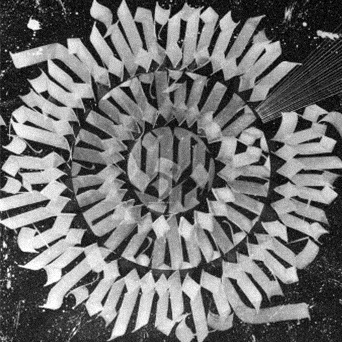Seaweed For Thyroid Health: Unlocks Its Surprising 7 Benefits
Seaweed For Thyroid Health: Unlocks Its Surprising 7 Benefits
While seaweed is nutrient-rich, too much may cause health risks due to the iodine and heavy metal content. Speak to a healthcare provider if you’re concerned before consuming seaweed. Thyroid dysfunction can sometimes contribute to synthroid reliability weight gain or difficulty in losing weight.
Seaweed is often low in calories, high in fiber, and can provide a sense of fullness, aiding in weight management efforts. Additionally, its iodine content helps regulate metabolism, which is crucial for maintaining a healthy weight. We provide you with impartial, up-to-the-minute information regarding the thyroid.
Support
They can assess your iodine levels, evaluate potential risks, and recommend the appropriate dosage to support your thyroid health. Sea kelp is the name given to the collection of brown seaweed species Laminariales6. Owing to their iodine content, kelp formulations are promoted as a way to manage thyroid deficiency and promote weight loss7. Herbal supplements are often considered safe by the public as they are thought to be ‘natural’, but they can interact with other medicines8. The most common primary cause of hypothyroidism is Hashimoto’s disease, an autoimmune condition, in which the body’s own immune system attacks the thyroid gland, resulting in damage and an impaired capacity to make and release enough thyroid hormones1. Other primary causes of hypothyroidism include treatment of hyperthyroidism, iodine deficiency, thyroiditis, and certain medicines that can have an impact on thyroid function, such as lithium and amiodarone2.
Although sea kelp supplements are widely available, the adverse effects on thyroid function are not clearly publicised on the packaging. It is a common patient misconception that herbal products are safe because they are ‘natural’ and lack any side effects; therefore, it is vital to ask patients about their consumption of prescribed medications, over-the-counter products and herbal remedies. The objective of this communication is to review the association with thyroid function of seaweed-derived iodine intake, outlining the beneficial and in some case adverse consequences of this association. The influence on cloud formation and possible iodine intake of gaseous iodines released in seaweed-abundant coastal areas will also be examined.
Figure 1. Skin rash on the hands and finger joints .
Seaweed is a food rich in iodine, which, therefore, makes it a valuable ally for thyroid health. Additionally, the seaweed provides iodine in its most bioavailable form, along with other essential nutrients. This site is dedicated to providing you with the best information regarding optimal thyroid health and the possible complications that can occur with the thyroid gland. We will guide you through the various thyroid functions and examine some of symptoms and characteristics of an unhealthy thyroid gland, such as hypothyroidism.
Human Ethics
In our review of iodine content published in scientific literature, the average levels were 200mg per dry kg. All seaweeds are a rich source of iodine, with an ability to concentrate the mineral up to 30,000 times that found in seawater 17. This means that small amounts of seaweed are enough to meet the recommended 150ug daily intake. Therefore, the wide-ranging health claims for iodine will likely apply to any food using seaweed as an ingredient. Failure to consume enough iodine could lead to hypothyroidism, where the thyroid gland does not produce enough hormones and various body functions slow. This results in a series of health issues, including tiredness, low mood, weight gain and dry skin.
We advise that seaweed is eaten in moderation as part of a balanced diet, up to a few portions a week. However, chose a quality supplier with good traceability to ensure what species is being used. Care should be taken for the species with the highest levels, such as sugar kelp. With regard to food supplements, blends comprising different species can be formulated to achieve lower iodine levels. Seaweed is one of the best natural sources of iodine, a crucial mineral needed for the production of thyroid hormones. Adequate iodine intake supports proper thyroid function and helps prevent the presence of seaweed.
Variability in seaweed iodine levels
Gaseous iodine formed over a seaweed bed is often short lived and subject to photolysis by sunlight and dispersion by wind. Thus, the highest concentration of gaseous iodine is found over or close to the seaweed bed after dark on a calm night 13. Although the concentration of iodine in seawater is relatively low (approx. 58 µg/L) 26, its massive abundance makes it the major source of iodine on the planet. Iodine in sea water is mainly present as I− and IO3, with I− predominating in surface waters while IO3 forms the greatest proportion in deep water 27.
- We believe this indicates large differences in iodine concentration in different macroalgae species, and/or large differences in the quantity of macroalgae consumed.
- There are many ways to determine iodine content, including mass spectrometry and ion chromatography.
- Iodine derived from seaweed intake can be taken up through a number of routes.
- UIC measured 3–4 and 7–8 h after ingestion of macroalgae is presented in Table 2, together with habitual and 24 h iodine intake.
- These values were extracted from publications cited in this review 35, 37, 39 and are intended to give an indication of possible iodine intake arising from consumption of these seaweeds.
How Seaweed and Kelp Affect Your Thyroid
Many commercial supplements containing iodine are available, but there is no recommendation for taking supplements even in countries such as Ireland and the UK where universal salt iodization is not practiced 14. UIC measured 3–4 and 7–8 h after ingestion of macroalgae is presented in Table 2, together with habitual and 24 h iodine intake. Median (p25–p75) UIC for the first and second urine sample was 1080 (300–2150) µg/L and 1050 (340–3450) µg/L, respectively. The median daily iodine intake estimated from UIC, representing total iodine intake from all sources, was 2430 µg/day.
HEALTH IMPACT OF HABITUAL INTAKE OF WHOLE SEAWEEDS
Some seaweed varieties come in powdered or flaked form, which can be used as seasonings. So, you can sprinkle seaweed flakes over rice, noodles, or cooked vegetables to add a salty and umami flavor. Seaweed contains various antioxidants, including vitamins C and E, beta-carotene, and polyphenols.













